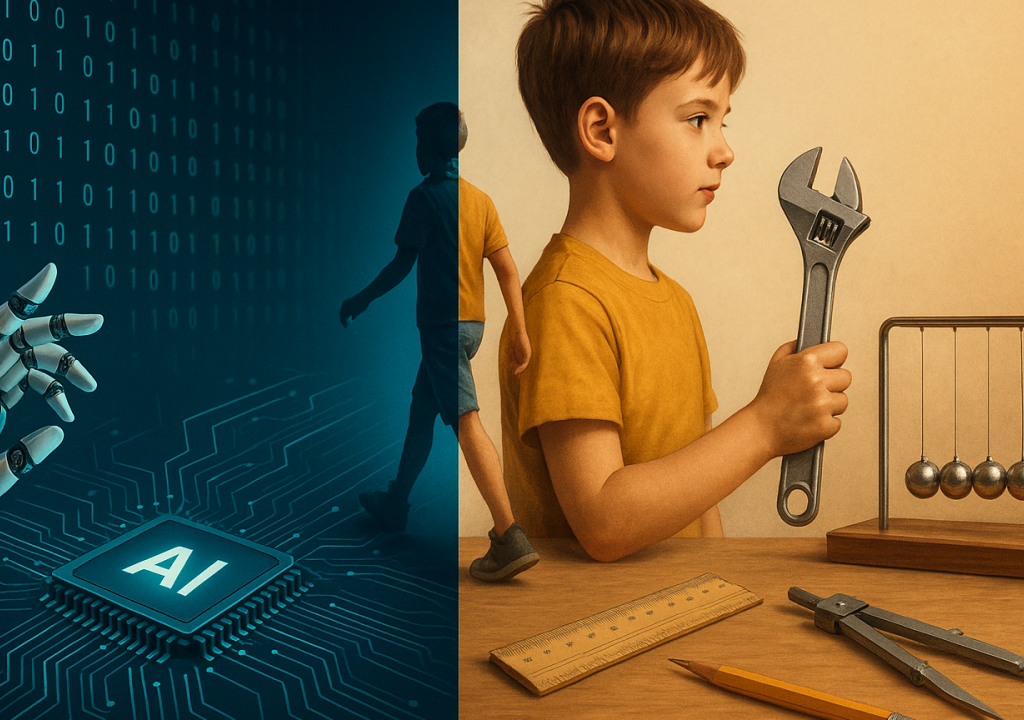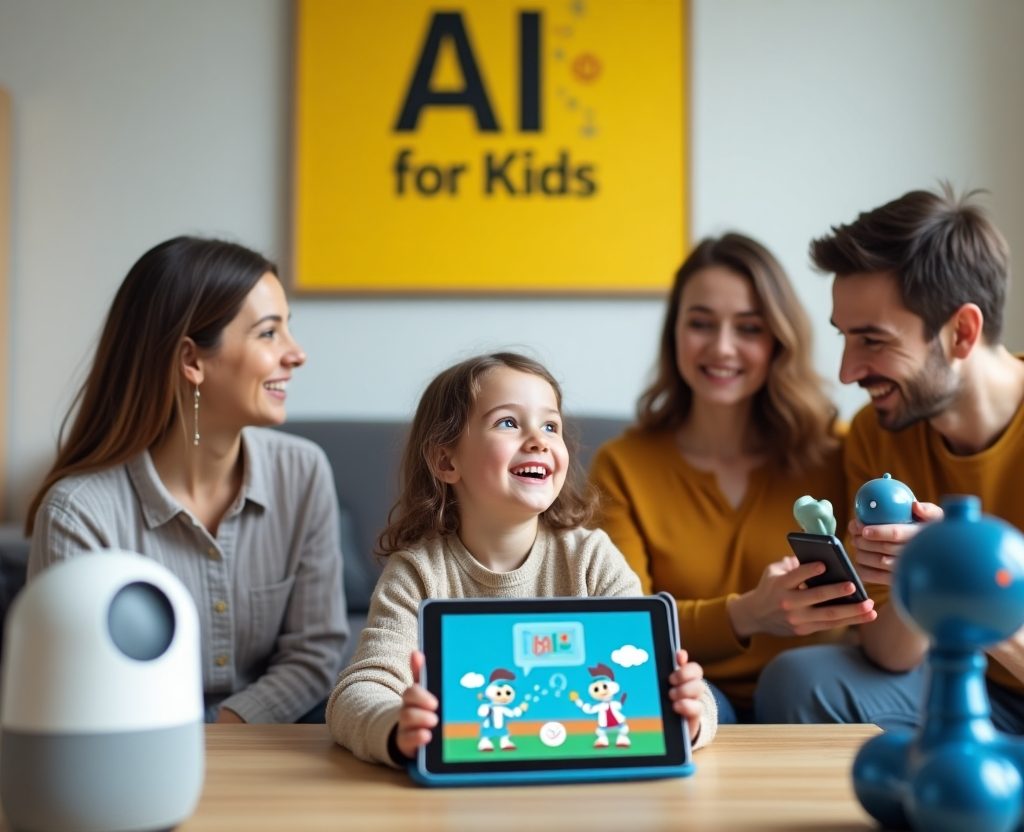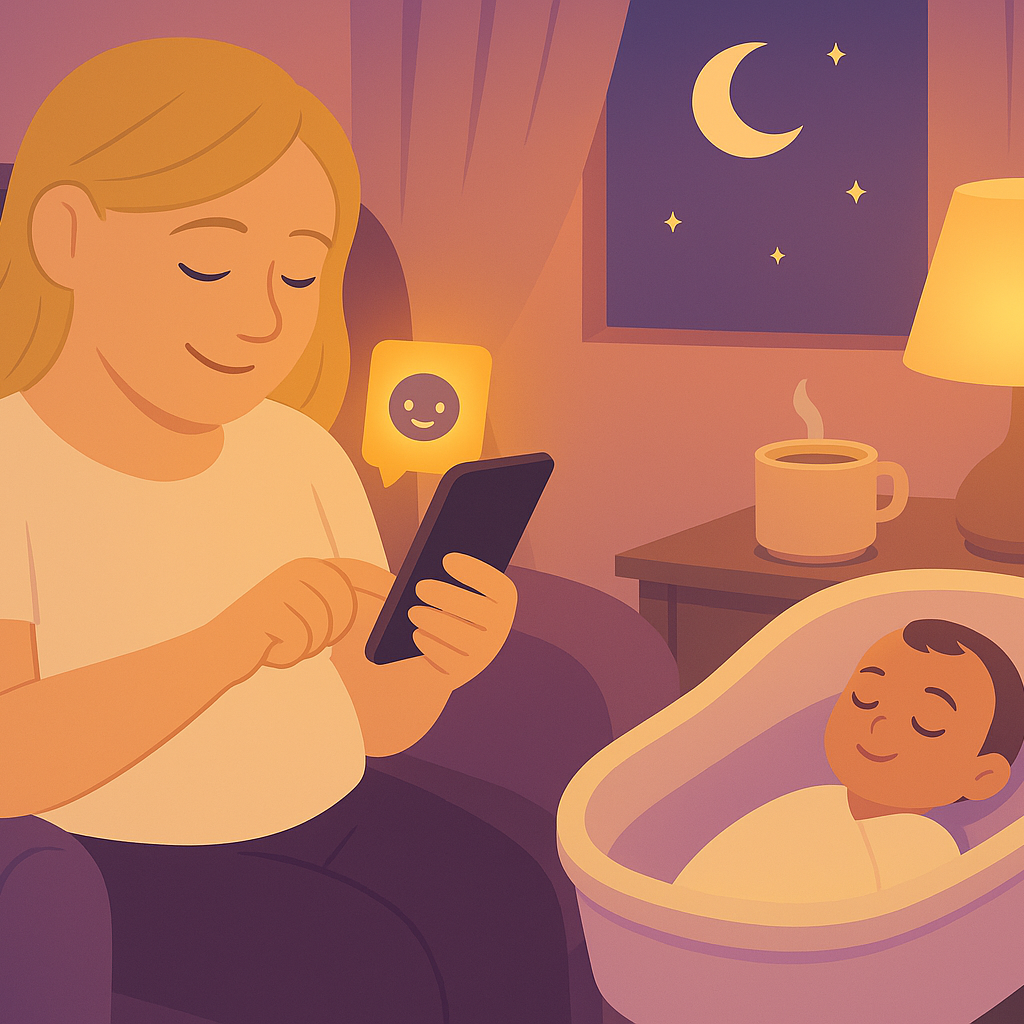Parenting in the Age of AI means navigating a world where artificial intelligence is part of everyday childhood and early education. Today, understanding the importance of parenting in the age of AI has never been more crucial, as technology shapes how children learn, think, and interact. As parents, we must ask key questions: What is AI’s role in a child’s life today? How can we guide our children to use smart tools responsibly? And how do we use an AI parenting app wisely to support, not replace, real human connection? In this digital generation, parents play a vital role in balancing innovation with emotional growth, ensuring that AI remains a tool for learning—not a substitute for parenting.
The Importance of Parenting in the Age of AI:
When we talk about the importance of parenting in the age of AI, we refer to the need for thoughtful, informed guidance as children grow up surrounded by intelligent machines. AI is not just a gadget—it influences learning, play, social interactions, and even values. In fact, research shows that children can learn effectively from AI when it is designed thoughtfully—but it cannot replace the deeper human interactions that shape character and values.
Moreover, many parents feel uncertain about the effects of AI on children. A recent survey found that 72% of parents are concerned about AI’s impact on kids and teens.
This is why the importance of parenting in the age of AI is not an optional extra—it is a core part of raising a child who is resilient, curious, and grounded. Parents must actively participate, talk, model behaviour, and set boundaries rather than leave everything to AI.

What is AI’s Role in a Child’s Life Today?
First, let’s look at what AI does today for children—and how parents should respond.
Personalized Learning & Assistance:
AI tools can help children learn skills in new ways. For example, smart systems that ask questions during reading activities can boost comprehension and vocabulary.
Everyday Tasks & Support:
Parents are using AI to assist with daily routines: meal planning, schedules, even conversation starters for kids. One parent said they used AI to plan camp lunches, craft bedtime stories, and more. Good Morning America
Digital Relationships and Monitoring:
AI can even analyse parent-child interactions, monitor safety, or flag issues early. For instance, an AI model identified low-quality mother–infant interaction with high accuracy.
Risks and Alerts:
However, AI’s role also comes with risks. Over-reliance can reduce creativity, weaken critical thinking, and foster dependency.
Therefore, parents must stay alert: What is AI’s role in a child’s life today? It’s as a tool, a companion, a helper—but not a substitute for human care.

AI Parenting App: Helping or Hurting?
When we speak of an AI parenting app, we refer to tools designed for parents to enhance their parenting in the age of AI. But they come with both promise and caution.

Promise of AI Parenting App Tools:
- They reduce mental load: For example, parents writing shopping lists or menus get help from AI.
- They support awareness: Some apps help parents see how tech use may interfere with parent-child interaction (“technoference”).
- They encourage families to learn about AI: A resource suggests that parents should “get curious with your kids about AI” rather than hide it.
Caution with AI Parenting App Tools:
- They are not replacements for human judgement. One expert warned: “It still makes things up sometimes.”
- Dependency risk: If children or parents rely too much on AI parenting apps, then human connection may suffer.
- Data privacy and oversight: Parents are concerned about safety, ethics, and how AI apps handle their children’s data.
Best Practices for Using an AI Parenting App:
- Use the app with your child, not instead of them.
- Maintain open discussions: Explain what the tool is doing, what it cannot do.
- Set clear boundaries: For instance, a rule that AI can help brainstorm but your child must complete the project.
- Monitor and review: Talk about how the app is used, what results it gives, and whether it aligns with your values.
Actionable Steps for Parents:
- Start a conversation with your child about AI: “This is how AI works, this is what we will let it do.”
- Review family tech use: Are devices replacing face-to-face time? Are we modeling mindful AI usage?
- Choose an AI parenting app carefully: Look for transparency, parental controls, and alignment with your family values.
- Encourage critical thinking: When your child uses AI, ask questions like “How did you decide to use it?” or “What could you do without it?”
- Reflect regularly: Parenting in the age of AI means evolving. What worked six months ago may need adjustment.
Conclusion:
Parenting in the age of AI brings new tools, new challenges, and new responsibilities. As AI becomes part of a child’s life today, your role as a parent remains central. An AI parenting app can support you, but it cannot replace you. By understanding the importance of parenting in the age of AI, learning what AI’s role in a child’s life today is, and using AI parenting app tools wisely, you’ll be better prepared to raise children who are thoughtful, capable, and emotionally strong.
Ready to explore how to implement these ideas in your home? Let’s keep this conversation going.
FAQS:
1. How can I explain AI to my kids in a simple way?
Tell your kids that AI is like a smart helper that learns from information to answer questions or do tasks—just like how we learn from practice. But remind them that AI doesn’t “think” or “feel” like people do; it only follows patterns it’s been taught.
2. Do I need to be an AI expert to guide my children?
No, you don’t need to be an expert. You just need to stay curious, ask questions together, and learn as a family. Guiding your child with awareness and discussion is far more important than having deep technical knowledge.
3. How does AI affect a child’s social and emotional development?
AI can offer learning support, but too much use might reduce face-to-face interaction. Children learn empathy, patience, and communication best through real-life experiences, so balance screen use with personal connections.
4. Could AI diminish my child’s critical thinking skills?
If children rely only on AI for answers, they may stop questioning or analyzing information. Encourage them to ask “why” and “how” instead of just accepting what AI says, so their reasoning skills stay sharp.
5. What about my child’s creativity and imagination?
AI can inspire ideas but may also make children dependent on ready-made content. Ask your child to use AI as a starting point—then create their own stories, drawings, or solutions without copying AI’s suggestions.
6. How can I protect my child’s privacy from AI?
Use parental controls, limit data sharing, and choose apps that are transparent about privacy policies. Teach your child never to share personal details like their full name, school, or location online.
7. How do I address the risk of biased or harmful content from AI?
Explain that AI sometimes makes mistakes or reflects unfair biases from the data it learns. Encourage your child to check information from multiple trusted sources and discuss anything confusing or upsetting.
8. How should I set screen time limits in the age of AI?
Set clear daily limits and balance AI use with outdoor play, reading, and family time. Make sure screen use serves learning or creativity rather than just passive entertainment.
External Resources:

Empowering parents to raise happy, confident kids. Get practical parenting tips and advice on our blog, Smart Parent Guides.
